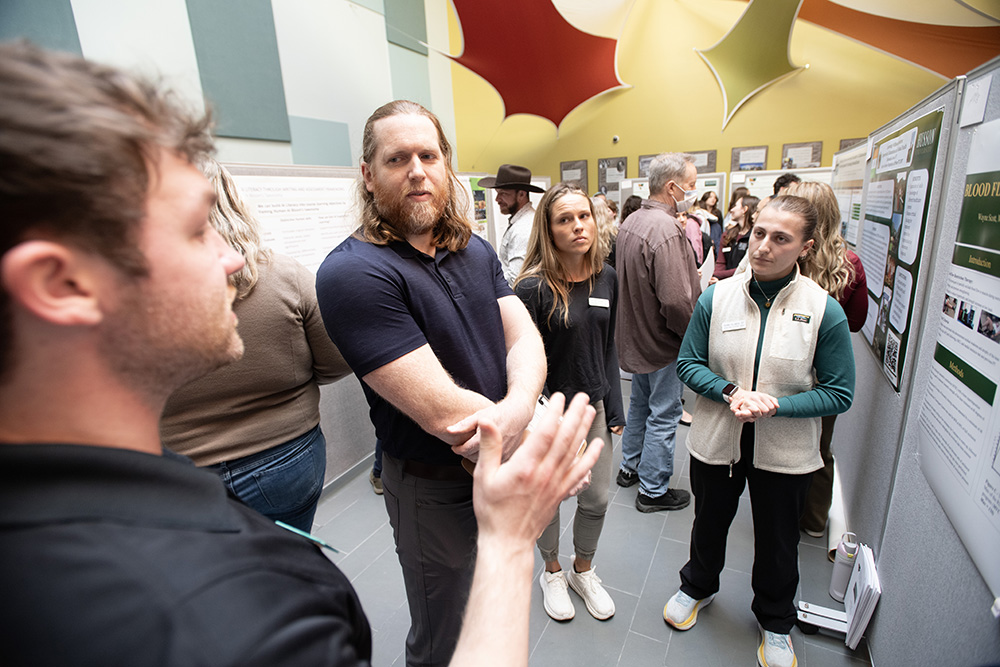From Cultivating AI Literacy to Social-Emotional Learning, Husson’s Research and Scholarship Day Showcases Many Areas of Study
Published on: April 17, 2025

More than 24 research projects were on display in the Darling Atrium inside the Beardsley Meeting House on Thursday, April 17, 2025, ranging in topics from AI to pain management to PFAS in wild ducks.
“This is really promoting what research can do on a variety of levels,” said Ryan Roderick, assistant dean and professor for Husson’s College of Science and Humanities and lead researcher of the project “Beyond Cheating: Cultivating AI Literacy Through Writing and Assessment Frameworks.”
Many projects were also focused on bringing light to lesser-known issues. Madeline Benoit, Sophie O’Claire, and Margaret Austin’s project, “Social-Emotional Learning in Higher Education: A Review of Services Available in Northeast Colleges and Universities,” covered the benefits of social-emotional learning and its position as largely absent from higher education.
“Social-emotional learning is not as widely accepted as you get older,” said Benoit. “I just want to spread the word about our research. We spent a lot of hard work on this project and we think it’s a very important topic that’s not talked about enough in the higher education realm.”
Other research focused on health-related topics including "The Effect of the Jada Device on Postpartum Hemorrhage in the First 24 Hours," by Hazel Dow under the faculty supervision of Sarah Bedi, DNP, FNP-C, which looked at how an FDA-approved device could reduce maternity mortality due to extreme blood loss after birth. The device is presently only in use at about a third of U.S. hospitals.
The sciences were also represented, including in a proposed project focusing on how the invasive emerald ash borer will change Husson's forest community.
The event concluded with a presentation from Lon Cardon, the president and CEO of The Jackson Laboratory in Bar Harbor, who spoke about the development of the lab and its roles in clinical research both as a dealer of lab mice and a purveyor of research. Cardon, who had a non-linear route to his role at The Jackson Lab, talked about his research interests as well as the lifecycle of advances in medical research.
“We’re all interested in how to push knowledge further,” said Roderick. “How do we find new things, and question ideas? And what does that mean for making our lives better and understanding the world a bit better? I think this gives a unique chance to come together around that initiative.”
— Rin Gately
